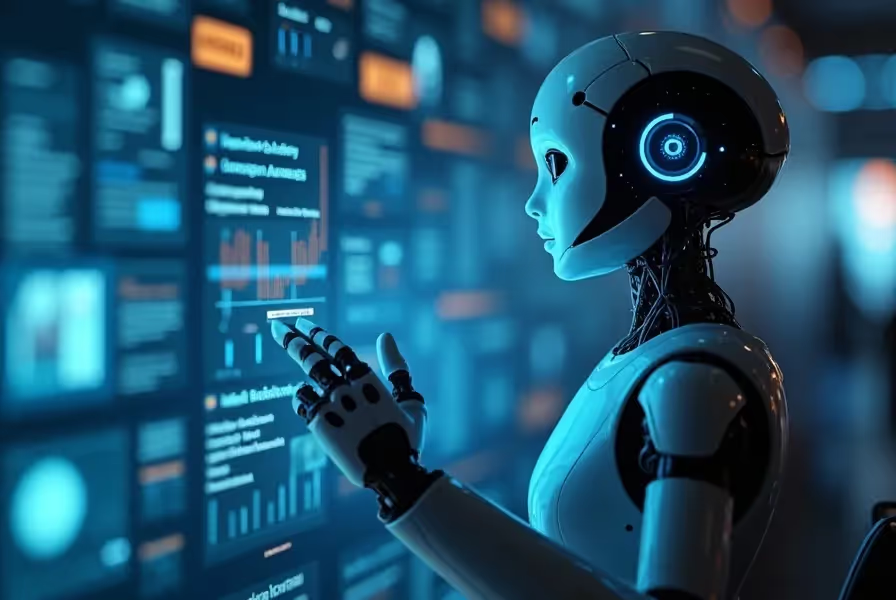Why AI Chatbots Aren't Perfect: Exploring Their Boundaries
AI chatbots have become powerful tools in customer support, content creation, and productivity. But despite their impressive capabilities, they are not flawless. Knowing the limitations of AI chatbots helps you use them more effectively and set realistic expectations.
Before relying fully on an AI chatbot, it's important to understand one key fact — they can and do make mistakes. Let's explore why this happens and how you can work around their limitations.
Can AI Chatbots Make Mistakes? The Truth You Need to Know
Yes, AI chatbots can make mistakes. These systems generate responses based on patterns in data. They do not possess human understanding or reasoning, which leads to errors in various situations.
Common chatbot mistakes include:
- Giving incorrect facts or outdated information
- Misunderstanding context or user intent
- Repeating responses or using awkward phrasing
- Falling for misleading prompts or prompts with trick questions
- Providing biased or sensitive content unintentionally
Recognizing these flaws helps you avoid overreliance and improves how you integrate these advanced tools into your workflows.
Why Do AI Chatbots Make Errors?
AI chatbots are based on large language models trained on text data. They use probability to predict the next word in a sentence. That means they do not “understand” in the human sense but generate what seems likely based on training.
Key reasons AI chatbots produce mistakes include:
- Training data limitations: AI is only as good as its data. If the training data contains errors, so will the chatbot.
- Outdated information: Some chatbots are trained only up to a specific date. Anything beyond that scope may be misrepresented or completely wrong.
- Misperception of context: AI chat often lacks a full grasp of the conversation. It may miss nuanced meanings or deeper intent behind your query.
This is why even top-performing AI tools can output surprising or incorrect responses, especially in complex or ambiguous situations.
Understanding Chatbot Limitations Builds Smarter Use
Successful AI interaction starts with setting expectations. AI can handle repetitive tasks well, generate ideas fast, and give instant responses. However, there are situations where human oversight becomes essential.
Here’s when to be extra cautious with chatbot responses:
- When making health or financial decisions
- When complying with legal or regulatory standards
- When managing sensitive or emotional communication
In these areas, you should always double-check information or consult a human expert. Think of AI as a helpful assistant, not a final authority.
How to Reduce Chatbot Mistakes in Your Workflow
You can minimize the impact of chatbot errors with a few practical strategies:
- Double-check critical information: Use trusted sources to verify facts before taking action.
- Provide clear, structured prompts: The better your input, the better the output will be. Add context, clarify intent, and use specific keywords.
- Keep human review in the loop: Especially for publishing, emailing, or customer-facing tasks.
- Stay updated with AI improvement: Learn how your chatbot stays current and whether it adapts automatically to new data.
These tips help maintain quality while increasing your efficiency with chatbot-powered tools.
Most Common Questions About AI Chatbot Accuracy
Are AI chatbots always accurate?
No. AI chatbots can confidently give incorrect answers. They are not fact-checkers. Their content needs review, especially when accuracy is important.
How often do AI chatbots make mistakes?
The mistake rate varies depending on the chatbot and use case. They perform well on structured tasks but may struggle with reasoning, ambiguity, or rare topics.
What kinds of mistakes do chatbots usually make?
Common issues include factual inaccuracies, misunderstanding tone, or giving biased or offensive content if not properly filtered.
Can AI chatbots learn from their mistakes over time?
Some chatbots improve with user feedback and fine-tuning. However, most don’t learn in real-time. You should not assume they will “adapt” to personal habits.
Is it safe to use chatbots for business decisions?
Use chatbots for support, drafting, or brainstorming. But always involve human judgment before making major strategic or legal decisions.
Building a Future with Smarter AI Collaboration
AI chatbots are rapidly evolving, but they are tools — not replacements for critical thinking. They excel at high-volume, low-risk tasks. For sensitive or important decisions, your insight remains vital.
As AI continues to grow, the way you use it matters as much as what it can do. With the right understanding, you can unlock its value, improve productivity, and avoid costly mistakes.
The more thoughtfully you integrate AI tools into your business or daily life, the more benefits you gain — without falling into the trap of overtrust.
Approach each AI conversation with a mix of curiosity and critical thinking. That balance is what turns artificial intelligence into real-world advantage.












.svg)



